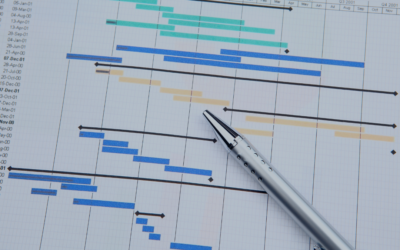As a CFO, you have a lot of your plate. When it comes to the financial health of your business, the buck stops with you. One of the most important tools you can have in your arsenal is a software system that helps you keep your finger on the pulse of the business. This is where ERP software comes in. It goes far beyond what basic accounting software can do to bring visibility across all areas of the business, not just the accounting and finance departments.
Do you struggle to collect the up-to-date data you need to make important business decisions? Or do you and your team spend entirely too long creating the financial reports you need to make well-informed choices? Then, it may be time to think about upgrading to an ERP system. But I’m sure if you’ve thought about this before, you realize finding the best accounting software for CFO is not easy.
If you can relate, this blog is for you. Keep reading for a quick rundown of the steps it takes to move successfully from do I need an ERP to I found the perfect match for me.
Finding the Best Accounting Software for CFO Step One: Define the Issues You Are Trying to Solve with an ERP
There are many reasons businesses implement ERP systems. One of the most common ones is manual workarounds and disconnected systems are hurting productivity and information accuracy. You might store your data in Excel spreadsheets. The problem is, this makes the data difficult to share and update. Another issue could be your month and/or year-end closing processes take way longer than they should. Or, if you are in a highly regulated industry, it’s hard to comply with all the ever-changing regulations using a basic accounting system.
Whatever your reason for wanting to upgrade to an ERP, just make sure everyone is on the same page before beginning the ERP buying process. That way, you’ll have a clear picture of the issues you are hoping the software will help you solve.
Finding the Best Accounting Software for CFO Step Two: Understanding Cost
Your new ERP system will be a significant investment for your business. One that should serve you for 7 to 10 years or longer. Depending on the type of ERP software you settle on, cloud or on-premise the cost structure will vary. With traditional on-premise systems, you must buy and maintain the hardware i.e. the servers the system will run on. You will generally also pay for the software licenses upfront.
If you buy a cloud-based system, you will not have to buy and maintain your servers and the vendor will spread out the cost of the licenses over the life of the system. Depending on the ERP vendor you choose, your license cost will either depend on the number of users you have or the amount of computing resources you need to run your ERP system.
Finding the Best Accounting Software for CFO Step Three: Create Your List of Requirements
Not taking the time to put together a clear list of goals for your ERP implementation is one of the most common reasons these projects fail. So, you want to get input from as many people as you can. It’s important to look outside the accounting and finance department and include representatives from all other departments who will use the software.
Also, think beyond your current needs to what you think they’ll look like few years down the road. Remember, buying an ERP as a long-term investment. So, you want to make sure the one you choose can grow with your business. Include any features you think you may need soon in your requirements list. Besides listing items you absolutely need, it’s also a good idea to think about those features you would like to have. The more of these are available in the system you ultimately purchase, the more likely it will satisfy you and your colleagues for the long term.
Finding the Best Accounting Software for CFO Step Four: Interview Vendors
An important part of weighing the pros and cons of ERP systems is to talk to each of the vendors. Because you’ll have the software for several years, you want to make sure that the vendor seems committed to their product and they’re a company you feel comfortable working with for the long haul.
As a CFO, here are a few questions you want to be sure to ask each ERP vendor you speak with.
- Does the software provide an audit trail of each transaction?
- Does the software allow me to automate approval processes?
- Does the software allow me to assign privileges by user or role?
- Does the system offer dashboards to give my team and I quick access to the KPIs that matter most to us?
- Can I export the systems’ reports to Excel or other data analysis software?
- What reports come standard in the system?
Also, keep in mind, since ERP software is complex, businesses rarely implement them on their own. Instead, you usually buy it through a partner or VAR (value-added reseller) who’ll help you with the installation and setup. Besides getting answers to each of the questions I listed above, it’s also crucial to speak with each VAR you might work with. Some questions to ask them include:
- How long have you been in business?
- Can you provide any client references, particularly from businesses in the same industry as me?
- How many years’ experience do you have working with this ERP system?
- Are you able to customize the system for me, if need be?
- What kind of user training do you offer?
- How do you handle post-sales support requests?
- Do you have any suggestions that might help make my ERP implementation more successful?
If you follow the four steps we’ve laid out in this blog, you will be well on your way to finding the best ERP software for you. Would you like to dig deeper into any of the steps we’ve talked about today? Or would like to learn more about the CFO’s part in the ERP buying process? Download “The ERP Buyer’s Guide for the Modern CFO.” This white paper developed by Acumatica, makers of one of the most popular ERP systems on the market today, gives you a great high-level overview of everything you need to know to make a smart ERP buying decision.
When you’re ready to explore some of your ERP options, visit this webpage. Should you have questions about which one is best for your business, contact us! Our experts have over 30 years helping businesses find the technology they need to reach their goals.




